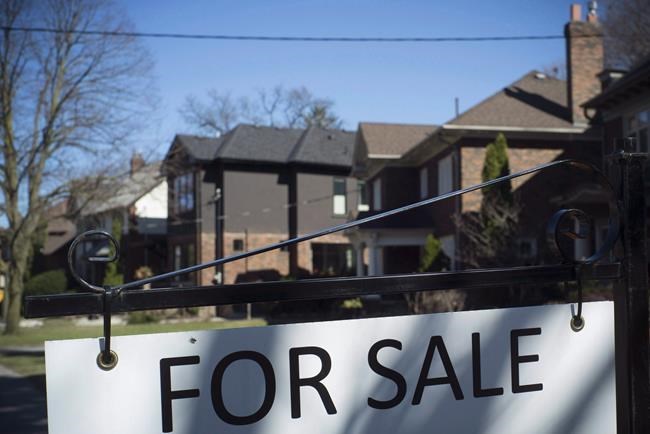Toronto's real estate market fractured in October as buyers favoured suburban neighbourhoods and detached homes while sellers wanted out of downtown condos.
There is a supply-demand disconnect in the real estate market in Toronto, says Freddy Mak, co-founder Ferrow Real Estate Inc. Condos are in flush supply — but the demand is for detached housing.
“People want suburbia. They want that detached single home — or even townhome, semi-detached," said Mak. "And that inventory is very, very limited."
These diverging markets — one where buyers bid up prices for spacious homes at a record-setting sales pace, and another where buyers have their choice of downtown condos — shone through in a Wednesday report from the Toronto Regional Real Estate Board.
The average selling price for homes across the Greater Toronto Area was $968,318 in October, 13.7 per cent higher than last October’s average of $851,877, the board said. But price-wise, the condo market has nearly flattened in the Toronto area, with prices 0.7 per cent higher than this time last year.
Compare that to the average prices of detached homes, which rose 14.8 per cent to $1,204,844.
Simcoe County has seen benchmark house prices rise more than 20 per cent from this time last year, and Durham Region prices are up more than 18 per cent. In the city, the benchmark price is up a little over 7 per cent from October 2019.
“I think you're seeing a shift in terms of where people are purchasing,” said Mak.
“Working from home, desire for privacy and private outdoor space — that's what you're getting in suburban markets... People do not want to rub shoulders with each other.”
Real estate agents sold a record 10,563 homes in October, a 25.1 per cent increase from October 2019, TRREB said.
But as buyers competed over limited listings for detached homes, the number of condos listed for sale this October was double the number of condos that hit the market in October 2019.
Condo sales rose 2.2 per cent overall compared with this time last year, but fell 8.5 per cent in the city of Toronto and increased 28.4 per cent in the suburbs.
“In past years — hot sellers' markets — condos were selling in three to five days,” Mak said.
“You're probably going to see listings in the 30- to 60- day sale cycles now, as opposed to three, five day cycles … I feel it's almost a good problem to have as a buyer. It's like having too many options.”
The selling spree for condos comes after the rules changed in September for short-term rental websites like Airbnb. Investors in Toronto are no longer allowed to have a separate home that’s solely used for renting out for days or weeks at a time.
Real estate board president Lisa Patel said that before COVID-19, investors were expected to sell more in 2020.
On top of that, it's harder for landlords to find renters — such as tourists, students and young professionals — in the downtown core amid travel restrictions, virtual learning and lingering joblessness during the pandemic.
Mak said that despite the wave of new condos on the market, the overall demand to buy homes is still outpacing the number of new listings — thus, prices are rising on the market as a whole. Immigration, which slowed during the pandemic, could also spur demand if policies change going forward.
With new cases of COVID-19 reaching daily highs in Ontario this week, Mak senses a split among sellers.
“We're seeing both ends of the spectrum. We're seeing people say, ‘COVID is still here, still prevalent, and I don't want to show my property because I don't want people coming in,'” said Mak.
“On the other end is people that want to sell that want to take advantage of the higher prices.”
Mak said he understands why the hot suburban real estate market may be puzzling to onlookers, wondering how prices are rising amid an uneven economic rebound. Low interest rates are one factor helping homebuyers stomach the big purchase, Mak said.
“You're looking at these really great borrowing rates … that is going to help fuel the purchasing side for the Toronto real estate market,” said Mak. “I think if people look at real estate as sort of the most stable investment, the most long-term investment … in this challenging time.”
TRREB's chief market analyst Jason Mercer said that the overall Toronto housing market has now caught up to where it was this time last year, despite a near halt in home sales this spring when the COVID-19 lockdown began.
“Year-to-date home sales through October were above last year’s level,” Mercer said. “With this being said, we have not accounted for all of the pent-up demand that resulted from the spring downturn. Expect record or near-record home sales for the remainder of 2020.”
This report by The Canadian Press was first published Nov. 4, 2020.
Anita Balakrishnan, The Canadian Press




